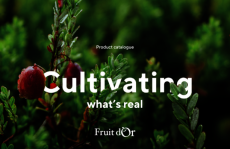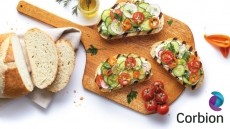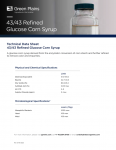Red wine keeps liver healthy, suggests new study
properties of wine with a US study suggesting a glass of red wine a
day could actually protect against liver disease.
People who drank up to one glass of wine a day saw the risk of liver disease due to Non-Alcoholic Fatty Liver Disease (NAFLD) cut in half, report researchers at California university's San Diego School of Medicine, who carried out a study of nearly 12,000 individuals. NAFLD, almost unknown over two decades ago, is the most common liver disease in the US. Affecting over 40 million adults in the US alone, its prevalence is expected to grow worldwide as nations become increasingly obese. Previous research has linked the potential health benefits of wine to resveratrol, a powerful polyphenol and anti-fungal chemical that occurs naturally under the skin of red wine grapes. It is often touted as the bioactive compound in grapes and red wine, and has particularly been associated with the so-called 'French Paradox', a phrase used to describe the low incidence of heart disease and obesity among the French, despite their relatively high-fat diet and levels of wine consumption. But recommendations for modest alcohol consumption in individuals at risk for cardiovascular disease have overlooked the fact that these same people are also at an increased risk for NAFLD, state the San Diego researchers. The Californian scientists set out to investigate whether modest alcohol consumption for the heart is safe with regards to the liver. Their findings suggest "a paradigm shift", in that a daily tipple of one's favourite red may not only be safe for the liver but could actually decrease the prevalence of NAFLD. "The odds of having suspected NAFLD based upon abnormal liver blood tests was reduced by 50 per cent in individuals who drank one glass of wine a day," said Jeffrey Schwimmer, associate professor of gastroenterology, hepatology and nutrition, Department of Pediatrics, UC San Diego School of Medicine and Director, Fatty Liver Clinic at Rady Children's Hospital San Diego. The result remained constant, even after adjusting for age, sex, race, education, income, diet, physical activity, body mass index, and other markers of health status, the researchers report in the June 2008 issue of Hepatology. In contrast, compared with wine drinkers, people who reported modest consumption of beer or spirits had over four times the odds of having suspected NAFLD. The protective properties of compounds found in red wine are the focus of numerous studies today as industry and academia investigate dietary mechanisms to stem the growing tide of diseases such as obesity, heart disease and diabetes. A recent study in California, for example, found low doses of freeze-dried grape powder could inhibit the development of colorectal cancer thanks to the polyphenol resveratrol and synergistic effects between the grape compounds. Previous studies have also linked resveratrol to bearing a positive effect on extending survival rates of mice and preventing the negative effects of high-calorie diets. It has also been linked to diabetes, heart health and obesity. In red wine, the amount of resveratrol in a bottle can vary between types of grapes and growing seasons, and can vary between 0.2 and 5.8 milligrams per litre. But nearly all dark red wines - merlot, cabernet, zinfandel, shiraz and pinot noir - contain resveratrol. As the evidence stacks up to support the positive message behind polyphenols fresh market opportunities are opening up. Frost & Sullivan estimates that there is significant potential for growth in polyphenol use as health ingredients. Revenues for the overall European polyphenols market in 2003 were thought to be worth $99 million (€77.88m), with red fruit anthocyanins, leading market expansion alongside green tea flavonoids, and grape and olive polyphenols. The cross-sectional, population-based study of nearly 12,000 participants in the National Health and Nutrition Examination Survey (NHANES), an epidemiological survey conducted by the Centers for Disease Control and Prevention (CDC), included 7,211 non-drinkers and 4,543 modest alcohol drinkers. The scientists warned that "because this effect was only seen with wine, not in beer or liquor, further studies will be needed to determine whether the benefits seen were due to the alcohol or non-alcohol components of wine." The study was funded in part with grants from the National Institutes of Health National Research Service Award (NIH NRSA) and from the National Center for Research Resources of the National Institutes of Health for the General Clinical Research Center at UC San Diego.













